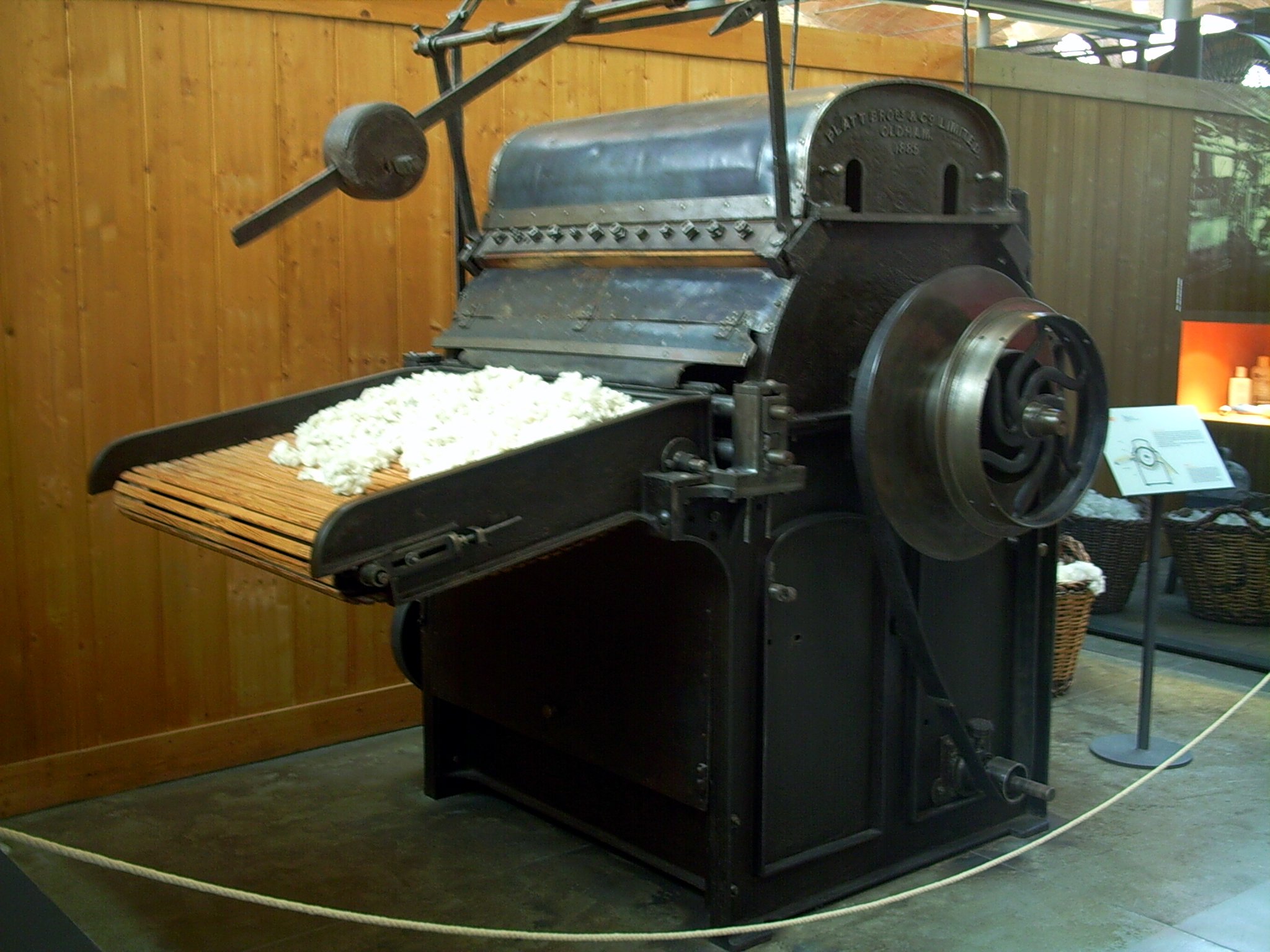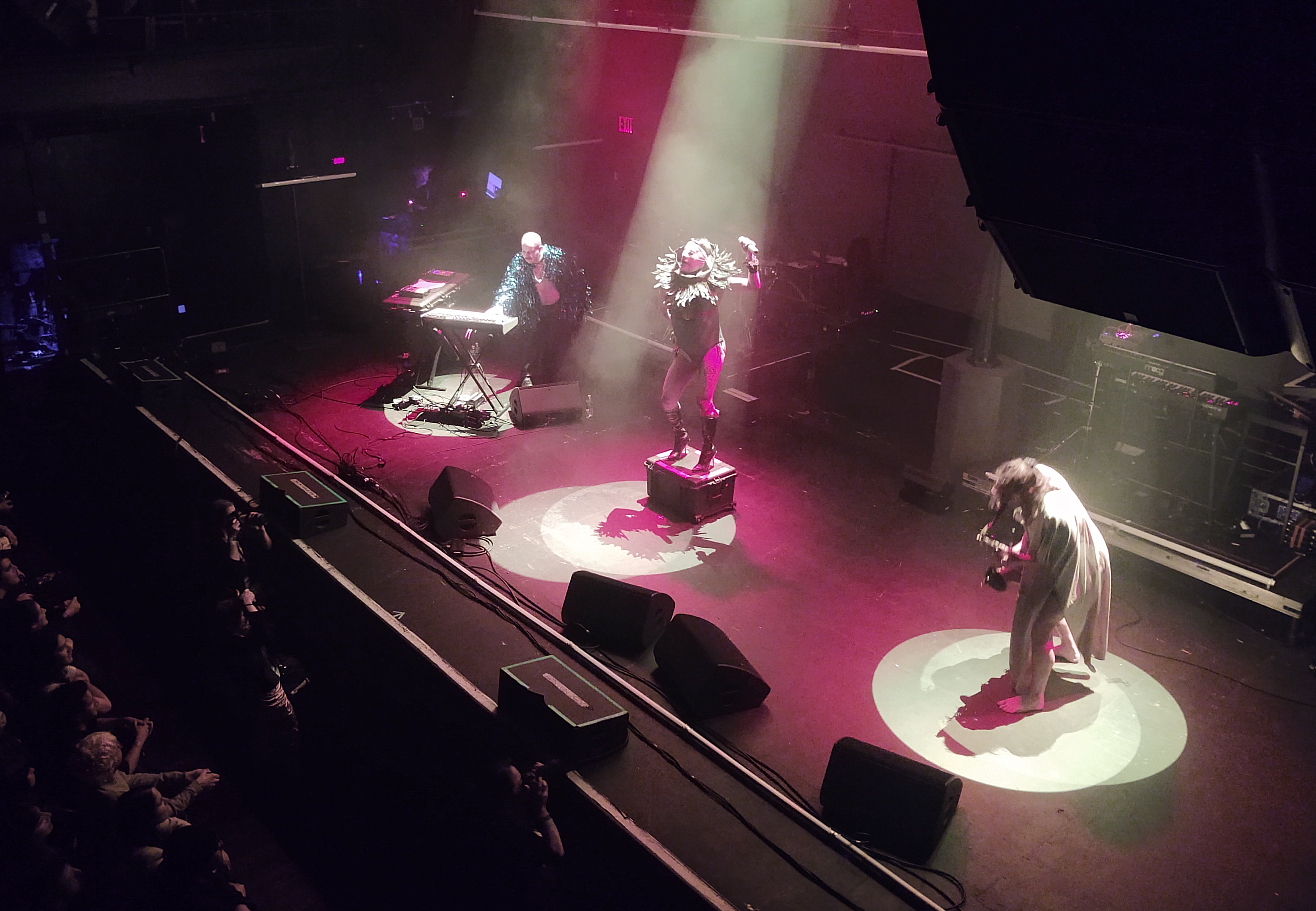|
Islington Mill Arts Centre
Islington Mill is a six-storey Georgian mill building, located at 1 James Street, Ordsall, Salford, England. The name 'Islington Mill' is commonly used to refer to the wider collection of nineteenth and early twentieth century buildings that reside at this location, and to the Islington Mill Arts Club, which occupies those buildings. Architecture Islington Mill was originally built for cotton spinning in 1823 by the self-taught Leeds-born architect David Bellhouse (1764–1840). Bellhouse's firm was also responsible for the construction of the Manchester Portico Library, of which Bellhouse was also a founding member, and the original Manchester Town Hall on King Street, designed by Francis Goodwin and later demolished. A year after the original construction of Islington Mill there was a partial structural collapse of the building. During rebuilding, various new structures were added to the original model that had consisted of a single row of cast-iron columns. Further extens ... [...More Info...] [...Related Items...] OR: [Wikipedia] [Google] [Baidu] |
Textile Manufacturing
Textile Manufacturing or Textile Engineering is a major industry. It is largely based on the conversion of fibre into yarn, then yarn into fabric. These are then dyed or printed, fabricated into cloth which is then converted into useful goods such as clothing, household items, upholstery and various industrial products. Different types of fibres are used to produce yarn. Cotton remains the most widely used and common natural fiber making up 90% of all-natural fibers used in the textile industry. People often use cotton clothing and accessories because of comfort, not limited to different weathers. There are many variable processes available at the spinning and fabric-forming stages coupled with the complexities of the finishing and colouration processes to the production of a wide range of products. History Textile manufacturing in the modern era is an evolved form of the art and craft industries. Until the 18th and 19th centuries, the textile industry was a household work. ... [...More Info...] [...Related Items...] OR: [Wikipedia] [Google] [Baidu] |
Salford, Greater Manchester
Salford () is a city and the largest settlement in the City of Salford metropolitan borough in Greater Manchester, England. In 2011, Salford had a population of 103,886. It is also the second and only other city in the metropolitan county after neighbouring Manchester. Salford is located in a meander of the River Irwell which forms part of its boundary with Manchester. The former County Borough of Salford, which also included Broughton, Pendleton and Kersal, was granted city status in 1926. In 1974 the wider Metropolitan Borough of the City of Salford was established with responsibility for a significantly larger region. Historically in Lancashire, Salford was the judicial seat of the ancient hundred of Salfordshire. It was granted a charter by Ranulf de Blondeville, 6th Earl of Chester, in about 1230, making Salford a free borough of greater cultural and commercial importance than its neighbour Manchester.. The Industrial Revolution of the late 18th and early 19th cen ... [...More Info...] [...Related Items...] OR: [Wikipedia] [Google] [Baidu] |
David Bellhouse
David Bellhouse (February 8, 1764 – 1840) was an English builder who did much to shape Victorian-era Manchester, both physically and socially. Biography Born in Leeds, Bellhouse received no formal education. An autodidact, he taught himself to read and write and the elements of arithmetic and technical drawing. In 1786, he moved to Manchester where he married Mary Wainwright and took up employment as a joiner with the building firm of Thomas Sharp. Sharp died in 1803 and his family had little appetite for the business so it was acquired by Bellhouse. During the Industrial Revolution there was a mass movement of workers towards Manchester to take up employment in the cotton spinning and textile industry. This created a demand for cheap housing and Bellhouse and his partners were among several tradesmen builders who made their fortunes in property speculation. From the early nineteenth century, Bellhouse expanded into the construction of complete factories and into work as a sur ... [...More Info...] [...Related Items...] OR: [Wikipedia] [Google] [Baidu] |
Doubling (textiles)
Doubling is a textile industry term synonymous with combining. It can be used for various processes during spinning. During the carding stage, several sources of roving are doubled together and drawn, to remove variations in thickness. After spinning, yarn is doubled for many reasons. Yarn may be doubled to produce warp for weaving, to make cotton for lace, crochet and knitting. It is used for embroidery threads and sewing threads, for example: sewing thread is usually 6-cable thread. Two threads of spun 60s cotton are twisted together, and three of these double threads are twisted into a cable, of what is now 5s yarn. This is mercerised, gassed (AKA flamed) and wound onto a bobbin. Processing of cotton Doubling in the carding process In a wider sense carding can refer to the four processes of willowing, lapping, carding and drawing. During willowing the fibres are loosened; in lapping the dust is removed to create a flat sheet or lap of fibres. Carding combs the tangled ... [...More Info...] [...Related Items...] OR: [Wikipedia] [Google] [Baidu] |
The Haçienda
The Haçienda was a nightclub and music venue in Manchester, North West England, which became famous during the Manchester years of the 1980s and early 1990s. It was run by the record label Factory Records. The club opened in 1982, eventually fostering the Manchester acid house and rave scene in the late 1980s. The early success of Factory band New Order, particularly with their 1983 dance hit " Blue Monday", helped to subsidise the club even as it lost considerable amounts of money (in part due to clubbers' embrace of the street drug ecstasy, which drove down traditional alcohol sales). The club's subculture was noted by the Chief Constables of Merseyside & Greater Manchester as reducing football hooliganism. Crime and financial troubles plagued its later years, and it finally closed in 1997. It was subsequently demolished and replaced by apartments. Creation The former warehouse occupied by the club was at 11–13, Whitworth Street West on the south side of the Rochd ... [...More Info...] [...Related Items...] OR: [Wikipedia] [Google] [Baidu] |
The Ting Tings
The Ting Tings are an English indie pop duo from Salford, Greater Manchester formed in 2007. The band consists of Katie White (vocals, guitar, bass drums, bass guitar, cowbells) and Jules De Martino (drums, lead guitar, bass guitar, keyboards, vocals). The duo's debut studio album, ''We Started Nothing'', was released in 2008 by Columbia Records to positive reviews and commercial success, peaking at number one on the UK Albums Chart"World Album Charts" aCharts.us. Retrieved 10 June 2008. and number 78 on the US ''Billboard'' 200. It spawned four singles, including "", which topped the |
Gnod
Gnod are a British rock band from Salford, Greater Manchester, England.Smith, Samuel A.''INTERVIEW: Gnod'' The Quietus, 14 November 2013. Retrieved 20 November 2013.Connolly, Lea''Poking fun at religions, praising jungle and re-working the rules of the dancefloor in one of the North’s most exhilarating venues; just an average day in the life of Gnod'' The Crack. Retrieved 20 November 2013. Formed in 2006, the band was described in a review of its 2011 release ''Ingnodwetrust'' as "a collective from Manchester with an ever-rotating list of members."Killingbeck, Tom''Gnod'' The Quietus, 10 June 2011. Retrieved 20 November 2013. Its current lineup since 2012 is made up of key members Paddy Shine, Chris Haslam, Marlene Ribeiro, Alex Macarte and Andy Blundell, with a rotating cast of players, including drummers Jesse Webb and John Perry and vocalist Neil Francis. In addition to releasing its work on Rocket Recordings, the band's own Tesla Tapes label serves, according to its Ban ... [...More Info...] [...Related Items...] OR: [Wikipedia] [Google] [Baidu] |
Christeene Vale
Christeene Vale, known mononymously as Christeene, is the stage name of Paul Soileau, an American drag queen, performance artist, singer-songwriter and rapper. Christeene is noted for untraditional, "terrorist drag," which features her wearing torn-up clothing, stringy matted black wigs, and heavy and smeared makeup with aims to expose hypocrisy and intolerance. Early life Christeene is a character created and performed by Paul Soileau. Paul grew up in Lake Charles, Louisiana. He attended Loyola University New Orleans. Following college, he lived in New York City and New Orleans. After Hurricane Katrina, Soileau moved to Austin, Texas. Career Christeene is Soileau's second drag character, his first being Rebecca Havemeyer, who is similar to Barry Humphries' Dame Edna. "When Christeene came out of me," said Soileau, "I was searching for something that had the action of a switchblade in my pocket -- a character I could really put on quickly, but affect people in a much str ... [...More Info...] [...Related Items...] OR: [Wikipedia] [Google] [Baidu] |
European Regional Development Fund
The European Regional Development Fund (ERDF) is one of the European Structural and Investment Funds allocated by the European Union. Its purpose is to transfer money from richer regions (not countries), and invest it in the infrastructure and services of underdeveloped regions. This will allow those regions to start attracting private sector investments, and create jobs on their own. History During the 1960s, the European Commission occasionally tried to establish a regional fund, but only Italy ever supported it. Britain made it an issue for its accession in 1973, and pushed for its creation at the 1972 summit in Paris. Britain was going to be a large contributor to the CAP and the EEC budget, and sought to offset this deficit by having the ERDF established. They would then be able to show their public some tangible benefits of EEC membership. The ERDF was set to be running by 1973, but the 1973 oil crisis delayed it, and it was only established in 1975 under considerable Brit ... [...More Info...] [...Related Items...] OR: [Wikipedia] [Google] [Baidu] |
Music Venues In Greater Manchester
Music is generally defined as the art of arranging sound to create some combination of form, harmony, melody, rhythm or otherwise expressive content. Exact definitions of music vary considerably around the world, though it is an aspect of all human societies, a cultural universal. While scholars agree that music is defined by a few specific elements, there is no consensus on their precise definitions. The creation of music is commonly divided into musical composition, musical improvisation, and musical performance, though the topic itself extends into academic disciplines, criticism, philosophy, and psychology. Music may be performed or improvised using a vast range of instruments, including the human voice. In some musical contexts, a performance or composition may be to some extent improvised. For instance, in Hindustani classical music, the performer plays spontaneously while following a partially defined structure and using characteristic motifs. In modal ... [...More Info...] [...Related Items...] OR: [Wikipedia] [Google] [Baidu] |
Art Museums And Galleries In Greater Manchester
Art is a diverse range of human activity, and resulting product, that involves creative or imaginative talent expressive of technical proficiency, beauty, emotional power, or conceptual ideas. There is no generally agreed definition of what constitutes art, and its interpretation has varied greatly throughout history and across cultures. In the Western tradition, the three classical branches of visual art are painting, sculpture, and architecture. Theatre, dance, and other performing arts, as well as literature, music, film and other media such as interactive media, are included in a broader definition of the arts. Until the 17th century, ''art'' referred to any skill or mastery and was not differentiated from crafts or sciences. In modern usage after the 17th century, where aesthetic considerations are paramount, the fine arts are separated and distinguished from acquired skills in general, such as the decorative or applied arts. The nature of art and related concepts, ... [...More Info...] [...Related Items...] OR: [Wikipedia] [Google] [Baidu] |






